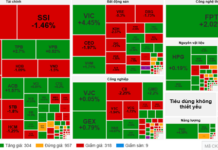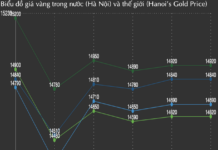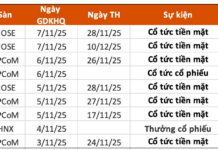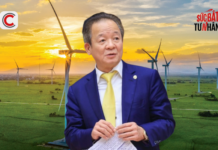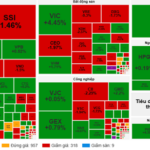According to the proposal, the current Personal Income Tax Law has also revealed certain limitations and inadequacies that need to be addressed. These include regulations related to taxable income and tax-exempt income. The Ministry of Finance has proposed developing a new Personal Income Tax Law to replace the existing one, aiming to ensure transparency and keep up with the reform requirements.

Ministry of Finance proposes developing a new Personal Income Tax Law. (Illustrative image)
There is a need to address issues related to the tax base and methods for determining the tax amount for certain types of income, as well as the tax rate structure for income from salaries and wages. Adjustments are also required to align with the 2024 Land Law and ensure the consistency of the legal system.
Furthermore, the scope and objects of taxation in the current Personal Income Tax Law do not cover all new types of taxable income. The regulation of income levels for different sources of income has also faced obstacles, necessitating adjustments to keep up with international tax reform trends and maintain a balanced relationship with individuals’ various income sources. The goal is to expand the tax base and ensure reasonable resource mobilization for the state budget.
The objectives of the new law are to expand the tax base, review and amend provisions related to taxpayers and taxable income, and adjust tax rates and thresholds for certain types of income to align with their nature and the regulatory goals of personal income tax. It also aims to study and adjust the level of deductions for taxpayers and dependents, considering the new context, and reduce the number of tax rate levels in the progressive tax rate table applied to income from salaries and wages.
The Ministry of Finance also aims to simplify the implementation of personal income tax policies for both taxpayers and tax authorities, preventing tax evasion and ensuring compliance. They will study and propose adjustments to the regulations on deductions for dependents, charitable and humanitarian contributions, and other specific deductions to keep up with economic and social development trends and promote the role of personal income tax policies in income redistribution.
Regarding the policy on completing the regulations on deductions for dependents, charitable and humanitarian contributions, and other specific deductions, the Ministry of Finance stated that the goal is to keep up with the economic and social development in the past period and future trends. This will help reduce the tax burden on taxpayers while continuing to promote the role of personal income tax policies in achieving income redistribution goals. Therefore, the Ministry of Finance will study and adjust the regulations on the level of deductions for dependents, taking into account changes in living standards, price indices, and macroeconomic indicators in the recent period.
The Ministry of Finance presented the expected progress of the draft Personal Income Tax Law (replacement) as follows: Formulate the proposal to build the draft law and submit it to the National Assembly’s Standing Committee. The Standing Committee will then report to the National Assembly for approval to add the draft Personal Income Tax Law (replacement) to the Law and Ordinance Building Program in 2025 at the 9th session of the 15th National Assembly (May 2025). The Government will submit the draft Personal Income Tax Law (replacement) to the National Assembly for opinions at the 10th session of the 15th National Assembly (October 2025) and for approval at the 11th session of the 15th National Assembly (May 2026).
A Comprehensive Review of Special Consumption Tax on Sugary Drinks is Needed
The proposal to levy a 10% excise tax on sugary beverages with a sugar content of 5g/100ml or more has sparked a heated debate among government ministries, industry experts, scientists, businesses, and consumers alike.
The E-commerce Floor and Digital Platforms: A Case for Corporate Income Tax
The government has proposed a new regulation requiring foreign businesses providing goods and services through e-commerce and digital platforms to pay taxes on their taxable income derived from Vietnam. This proposal aims to ensure that foreign enterprises doing business in Vietnam’s digital landscape contribute their fair share to the country’s tax revenue.
A Sugary Proposal: The Taxing Question of Sweet Drinks
The proposed Special Consumption Tax Law (amended) will be presented to the National Assembly for opinions at the 8th Session, taking place in November 2024. One of the novel points of this draft law is the proposed tax on sugary drinks. However, as this is the first time that a special consumption tax on sugary drinks has been proposed in such a law, it has sparked much debate and controversy.
“The Fertilizer Industry’s Plea: Remove the 5% VAT or Risk Our Decline and Halt Production.”
The latest amendments to the Value-Added Tax Law fail to address the long-standing issue faced by the domestic fertilizer industry. As a result, this vital sector continues to be discriminated against, excluded from the scope of value-added tax applicability. This exclusion puts the industry at risk of reverting to the decline and stagnation witnessed during 2015-2020, threatening its very survival.

